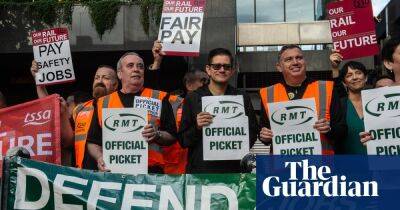Retirement on hold for UK’s over-60s as cost of living crisis bites
As her 66th birthday got closer Lindsay Hunt was making plans for her retirement. She hoped to volunteer at her local Citizens Advice office and find a course to learn something new, which she didn’t have time to do when she was working. Then the cost of living crisis struck.
Her husband’s petrol bills for his journey to work increased significantly, as did the cost of the weekly shop. And then the mortgage had to be paid. All under a cloud of rising inflation and interest rates.
After doing her figures, Hunt realised that the state pension, and her small private pension, would not be enough to cover her costs. And so her plans to retire after her April birthday were shelved indefinitely.
“Although I qualify for a full state pension, I know I would be struggling to pay my bills as I am struggling now while still working,” says Hunt, a housing adviser for a legal charity, who lives in Biggin Hill in greater London. “Going to the supermarket and seeing prices rise – 50p, 75p – every week, or every two weeks, really concentrates the mind on finances.”
Hunt is far from alone in deferring her plans. Research from Legal & General, one of the biggest pension providers in the UK, show that 38% of people in their late 50s and early 60s say they will delay retirement for up to a year as a result of the crisis.
“The pandemic had already made many people rethink their hoped-for retirement date. Now, the cost of living is also having an impact,” says Emma Byron, managing director of Legal & General’s retirement solutions division. According to the research, one in 10 believe that they will never retire.
Hunt says that she was due to get £1,200 a month from her state and private pension, but this would not be enough to cover rising bills.
Read more on theguardian.com


















